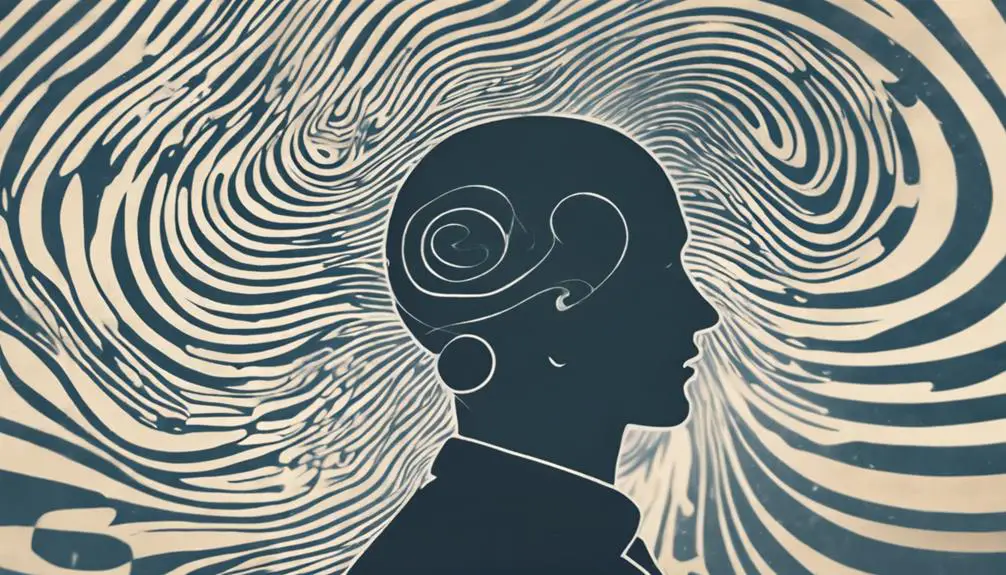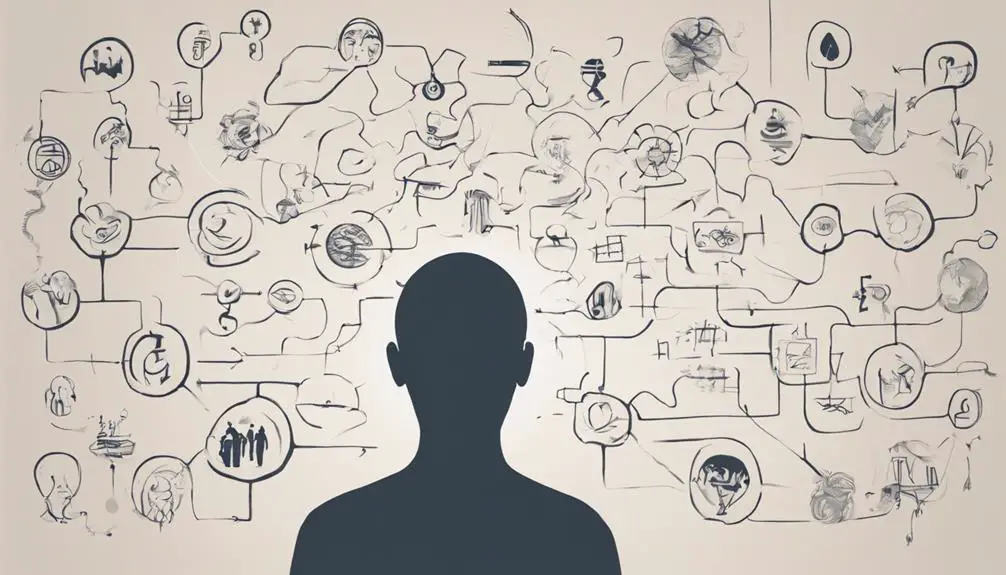Hypnosis Debunked
Clearing the Air: Hypnosis Myths Debunked
December 3, 2020 - Hypnosis Debunked
Hypnosis involves focused attention and heightened suggestibility for positive changes. It does not control minds but accesses the subconscious. Misconceptions include mind control, gullibility, and instant results for all. Scientifically proven, hypnosis aids therapy by delving into subconscious thoughts. Understanding myths is essential to grasp its true potential in improving mental well-being.
The Truth About Hypnosis

What is the true nature of hypnosis and how does it function within the realm of psychology?
Hypnosis is a scientifically recognized state of focused attention, heightened suggestibility, and deep relaxation. Contrary to popular belief, hypnosis does not involve mind control but rather encourages individuals to tap into their subconscious mind to explore and address various issues.
In the field of psychology, hypnosis is utilized as a therapeutic technique to help individuals overcome certain conditions or habits by promoting relaxation and enhancing suggestibility to positive changes.
Research has shown that hypnosis can be effective in aiding therapy by enabling individuals to access and process subconscious thoughts and beliefs. It works by creating a state of heightened focus and receptivity, allowing individuals to respond positively to therapeutic suggestions.
While some aspects of hypnosis may overlap with the placebo effect, the therapeutic benefits of hypnosis extend beyond mere suggestion. By integrating hypnosis into therapy, psychologists can assist individuals in making meaningful changes and achieving improved mental well-being.
Common Misconceptions Unraveled
Dispelling common misconceptions surrounding hypnosis is vital in understanding its true function and potential benefits in psychology.
One of the most prevalent myths clarified is the idea that hypnosis involves mind control. In reality, individuals under hypnosis remain fully conscious and in control of their actions.
Another misconception exposed is that only gullible or weak-minded individuals can be hypnotized. Research shows that the ability to enter a hypnotic state varies among individuals regardless of their intelligence or strength of mind.
Furthermore, the belief that hypnosis can retrieve repressed memories with accuracy is also a misconception. While hypnosis may enhance recall, the memories retrieved can be influenced by suggestion and may not always be accurate.
Additionally, the notion that hypnosis works instantaneously for everyone is a myth. The effectiveness of hypnosis varies from person to person and often requires multiple sessions for significant results.
Dispelling Popular Hypnosis Myths

Addressing prevalent misconceptions about hypnosis is crucial for fostering a clearer understanding of its principles and applications in psychology. Despite its portrayal in the media as a mystical or mind-controlling technique, scientific evidence suggests that hypnosis is actually a state of focused attention and heightened suggestibility, rather than a form of unconscious manipulation.
Studies have shown that hypnosis can be an effective tool for managing pain, reducing anxiety, and even enhancing cognitive abilities.
The media often sensationalizes hypnosis, leading to misconceptions that individuals can be forced to act against their will or reveal deep secrets under hypnosis. However, research indicates that people under hypnosis cannot be made to do anything against their moral beliefs or values.
Additionally, hypnosis is a collaborative process between the hypnotist and the individual, where consent and cooperation play a significant role in its effectiveness.
Expert Opinions on Hypnosis Myths
Experts in the field of psychology and hypnotherapy offer valuable insights into debunking common myths surrounding hypnosis.
Dr. Sarah Johnson, a renowned psychologist specializing in hypnosis, emphasizes that hypnosis is not a form of mind control as often portrayed in the media. She explains that individuals under hypnosis are not unconscious or devoid of willpower but are in a heightened state of focused attention, making them more open to suggestions that align with their values and beliefs.
Furthermore, Dr. Michael Chang, a leading hypnotherapist, highlights that another prevalent myth is that only gullible or weak-minded individuals can be hypnotized. He clarifies that hypnotizability varies among individuals and is not correlated with intelligence or strength of character. Research shows that most people can benefit from hypnosis to some extent, regardless of their personality traits.
Busting Hypnosis Misconceptions

To address common misconceptions surrounding hypnosis, it is important to understand the reality behind this therapeutic technique. One prevalent myth is the belief that hypnosis involves mind control. In reality, hypnosis is a state of focused attention and heightened suggestibility, where individuals still have full control over their thoughts and actions. It is a cooperative process between the hypnotist and the person being hypnotized, with the individual free to reject any suggestions that go against their values or beliefs.
Another common misconception stems from the portrayal of hypnosis in the entertainment industry. Stage shows and movies often depict hypnosis as a tool for making people cluck like chickens or reveal their deepest secrets against their will. However, these portrayals are dramatized for entertainment purposes and do not accurately represent the therapeutic use of hypnosis.
In a clinical setting, hypnosis is a tool to help individuals access their subconscious mind and make positive changes, such as overcoming phobias, reducing anxiety, or breaking unwanted habits.
Facts Vs. Fiction in Hypnosis
There is a notable discrepancy between the factual understanding of hypnosis and the fictionalized portrayals often seen in media and entertainment. Hypnosis, dating back to ancient civilizations like the Egyptians and Greeks, has a rich history rooted in therapeutic practices.
Contrary to the exaggerated depictions in movies and TV shows, hypnosis is not about mind control or making individuals do things against their will. Research has shown that hypnosis can be an effective tool in aiding various conditions such as anxiety, chronic pain, and smoking cessation. Despite its effectiveness, hypnosis is not a magical cure-all and may not work for everyone.
It is essential to approach hypnosis with realistic expectations and in conjunction with other evidence-based treatments when necessary.
Frequently Asked Questions
Can Hypnosis Make Me Do Things Against My Will?
Hypnosis, when practiced ethically and within established boundaries, does not make individuals act against their will. Consent is paramount in hypnotherapy sessions, ensuring that clients retain control and autonomy throughout the process.
Is Hypnosis Only Effective for Certain Personalities?
Hypnosis is not limited to specific personality types; its effectiveness varies based on individual responsiveness. Debunking misconceptions, research shows hypnosis can benefit a wide range of individuals, highlighting its adaptability and potential for positive outcomes across diverse personalities.
Will I Remember Everything Said During Hypnosis?
Memory recall during hypnosis can vary. Individuals may remember everything, some parts, or nothing at all. Hypnosis does not involve mind manipulation; it is a state of focused attention where suggestions are made for therapeutic purposes.
Can Hypnosis Be Harmful to Mental Health?
Hypnosis, when conducted by a qualified professional, typically has minimal risks to mental health. Benefits may include stress reduction and behavior modification. Ethical considerations involve informed consent and confidentiality. Misconceptions surrounding hypnosis often stem from theatrical portrayals.
Is Hypnosis the Same as Mind Control?
While hypnosis involves suggestibility, it does not equate to mind control. Ethical boundaries are crucial in practice, respecting individuals' free will. Hypnosis relies on cooperation and consent, promoting positive change through focused attention, not manipulation or coercion.
Conclusion
In conclusion, hypnosis is a misunderstood practice with many myths surrounding it. By examining the evidence and expert opinions, it is clear that hypnosis is a legitimate therapeutic tool with proven benefits.
It is important to separate fact from fiction and educate oneself on the truth about hypnosis in order to fully understand its potential and effectiveness in various applications.
